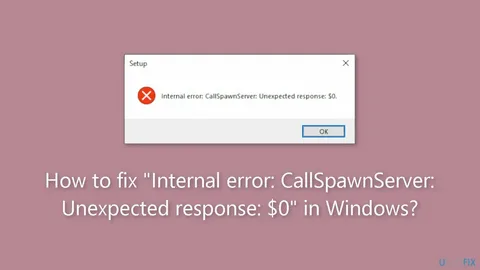What are the Legal Risks of Using YTMP3?
YTMP3 is a widely recognized online tool that allows users to convert YouTube videos into MP3 audio files. Its simplicity and effectiveness have made it a solution for individuals looking to extract audio from their favourite YouTube videos, be it for offline listening, creating playlists, or even educational purposes. Despite its popularity, it operates in a grey area regarding legality and ethics, which has sparked considerable debate. This article provides a detailed overview of this tool, its features, its usage, and its legal implications.
What is YTMP3?
YTMP3 is an online service that lets users easily convert YouTube videos into MP3 format. By simply copying the URL of a YouTube video and pasting it into the YTMP3 website, users can download the audio version of the video in just a few clicks. This process is free, quick, and does not require any software installation, making it accessible to virtually anyone with an internet connection.
Features and Usability
- User-Friendly Interface: Its interface is straightforward, allowing even those with limited technical knowledge to convert videos effortlessly. The main page features a single input box where users paste the YouTube link and a single button to start the conversion process.
- Fast Conversion: One of the main attractions is its speed. Most conversions are completed within seconds, depending on the length and quality of the video. The website supports high-quality MP3 files, ensuring the audio output is crisp and clear.
- No Registration Required: It does not ask for personal information, making it convenient for quick, one-time use.
- Compatibility: It works across various devices, including desktops, laptops, tablets, and smartphones. This cross-platform compatibility adds to its appeal, allowing users to convert videos on the go.
Legal and Ethical Considerations
While YTMP3 offers undeniable convenience, its legality is questionable. YouTube’s terms of service explicitly prohibit the downloading of content unless YouTube provides a download button or link, which means converting videos to MP3 using tools that violate YouTube’s guidelines.
- Copyright Issues: The primary concern is copyright infringement. Many YouTube videos are protected by copyright, meaning the creators own the rights to their content. By converting and downloading these videos without permission, users are potentially infringing on the creators’ rights.
- Fair Use Debate: Some argue that using this tool falls under “fair use,” a legal doctrine that allows limited use of copyrighted material without permission from the rights holders. However, this is a murky area and fair use typically applies to cases like commentary, criticism, or educational purposes rather than for personal entertainment.
- Risk of Legal Action: Although it is relatively rare for individual users to face legal action for using it, the risk remains. Content creators and copyright holders can pursue legal action if they believe their rights have been violated, although this usually targets the service providers rather than individual users.
Alternatives and Legal Options
For those concerned about its legality, alternative legal methods exist to obtain audio from YouTube videos.
- YouTube Premium: YouTube offers a subscription service called YouTube Premium, allowing users to download and listen to videos offline. While this does not provide MP3 files, it is a legal and safe way to enjoy YouTube content without an internet connection.
- Music Streaming Services: Platforms like Spotify, Apple Music, and Amazon Music offer vast libraries of songs, many of which are available on YouTube. These services are legal and often provide high-quality audio streaming and downloading options.
- Creative Commons Content: Some YouTube videos are released under Creative Commons licenses, which allow for legal downloading and reuse. Websites like Free Music Archive also offer a wide range of music that can be legally downloaded and used.
The Impact on the Industry
Such tools have significantly impacted the music and entertainment industries. While they offer convenience to users, they also contribute to revenue loss for artists, creators, and platforms like YouTube. The ease of accessing free MP3 files means that fewer people are willing to pay for music or subscribe to streaming services, which affects the livelihoods of those involved in content creation.
- Revenue Loss for Artists: Musicians and other content creators rely on platforms like YouTube for revenue. When users bypass official channels to download content, creators miss out on ad revenue and potential sales.
- Challenges for YouTube: YouTube has taken steps to combat illegal downloading by employing advanced algorithms and monitoring tools. However, the sheer number of conversion tools available makes it difficult to eliminate the practice.
FAQs
Q1: Is YTMP3 legal to use?
A: It operates in a legal grey area, potentially violating YouTube’s terms of service and copyright laws.
Q2: Can I get in trouble for using YTMP3?
A: While rare, there is a risk of legal action, especially if you’re downloading copyrighted content without permission.
Q3: Does YTMP3 work on mobile devices?
A: Yes, it is compatible with smartphones, tablets, and desktops.
Q4: Are there legal alternatives to YTMP3?
A: Services like YouTube Premium and music streaming platforms offer legal ways to access and download content.
Q5: Is there a risk of viruses when using YTMP3?
A: Using this tool or similar sites may expose your device to malware, so caution is advised
Conclusion
YTMP3 is a powerful and popular tool for converting YouTube videos to MP3 files easily. However, its use raises significant legal and ethical concerns, particularly regarding copyright infringement. While the convenience of this tool is undeniable, users must consider the potential consequences of violating YouTube’s terms of service and infringing on the rights of content creators. For those seeking legal alternatives, YouTube Premium and music streaming services provide safe and legitimate ways to enjoy audio content.






